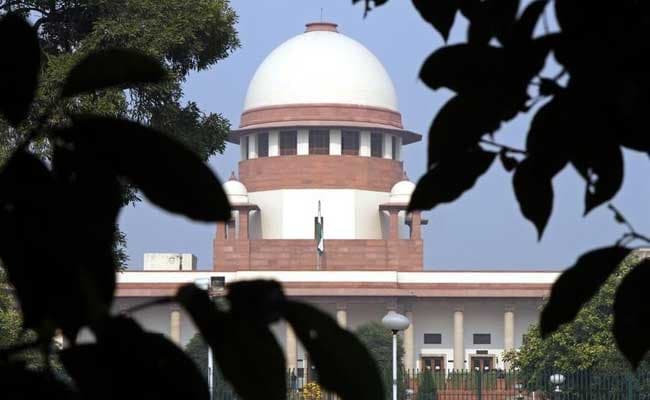
The National Judicial Appointments Commission was rejected by the Supreme Court.
New Delhi:
The government is unlikely to rush seeking a review of the Supreme Court verdict which overturned its law on appointment of judges to higher judiciary but would put forth its views on ways to improve the collegium system when the top court takes up the matter next month.
A day after the Supreme Court termed as unconstitutional the National Judicial Appointments Commission (NJAC) Act and a related Constitutional Amendment Act, the issues of filing a review and giving the top court suggestions on how the collegium system, which staged a comeback after the ruling, can be improved were discussed at a meeting Law Minister DV Sadananda Gowda held with his ministry officials in Delhi today.
Sources in the government said that seeking a review of the verdict is "almost ruled out".
They said a final decision will be taken after more deliberations.
A final decision on what exactly government wants to convey to the top court on collegium system would be taken after Mr Gowda discusses the issue with senior cabinet colleagues and Prime Minister Narendra Modi.
Since Attorney General Mukul Rohatgi was not present in today's meeting, Mr Gowda would also seek his views on the issue.
At the Supreme Court hearing on November 3, the government would suggest changes that would ensure the independence of the judiciary while at the same time taking care of its view that 'judges appointing judges' is not the best practice.
As part of its strategy to deal with the verdict, the government could also convene an all-party meeting to take everyone along on the key legislation.
If the all-party meeting is convened ahead of the winter session of parliament, it is expected to evolve a consensus given the fact that the legislation was first brought by the previous NDA government, later pushed by UPA dispensation and finally cleared by parliament last year.
The NDA government suffered a setback on Friday with the Supreme Court striking down as unconstitutional NJAC Act which gives a major role to the executive in appointing judges to higher judiciary.
The ambitious NJAC Act, 2014 to replace the 22-year-old collegium system of judges appointing judges was struck down by a five-judge Constitution Bench.
A day after the Supreme Court termed as unconstitutional the National Judicial Appointments Commission (NJAC) Act and a related Constitutional Amendment Act, the issues of filing a review and giving the top court suggestions on how the collegium system, which staged a comeback after the ruling, can be improved were discussed at a meeting Law Minister DV Sadananda Gowda held with his ministry officials in Delhi today.
Sources in the government said that seeking a review of the verdict is "almost ruled out".
They said a final decision will be taken after more deliberations.
A final decision on what exactly government wants to convey to the top court on collegium system would be taken after Mr Gowda discusses the issue with senior cabinet colleagues and Prime Minister Narendra Modi.
Since Attorney General Mukul Rohatgi was not present in today's meeting, Mr Gowda would also seek his views on the issue.
At the Supreme Court hearing on November 3, the government would suggest changes that would ensure the independence of the judiciary while at the same time taking care of its view that 'judges appointing judges' is not the best practice.
As part of its strategy to deal with the verdict, the government could also convene an all-party meeting to take everyone along on the key legislation.
If the all-party meeting is convened ahead of the winter session of parliament, it is expected to evolve a consensus given the fact that the legislation was first brought by the previous NDA government, later pushed by UPA dispensation and finally cleared by parliament last year.
The NDA government suffered a setback on Friday with the Supreme Court striking down as unconstitutional NJAC Act which gives a major role to the executive in appointing judges to higher judiciary.
The ambitious NJAC Act, 2014 to replace the 22-year-old collegium system of judges appointing judges was struck down by a five-judge Constitution Bench.
Track Latest News Live on NDTV.com and get news updates from India and around the world

